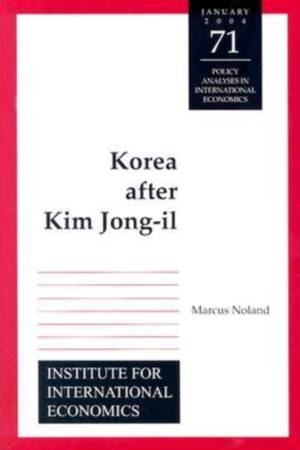
Je cadeautjes zeker op tijd in huis hebben voor de feestdagen? Kom langs in onze winkels en vind het perfecte geschenk!
- Afhalen na 1 uur in een winkel met voorraad
- Gratis thuislevering in België vanaf € 30
- Ruim aanbod met 7 miljoen producten
Je cadeautjes zeker op tijd in huis hebben voor de feestdagen? Kom langs in onze winkels en vind het perfecte geschenk!
- Afhalen na 1 uur in een winkel met voorraad
- Gratis thuislevering in België vanaf € 30
- Ruim aanbod met 7 miljoen producten
Zoeken
Omschrijving
Today's North Korean regime embodies elements of both communism and Confucian dynasty, is sovereign with respect to only part of the divided Korean nation, is vulnerable to pressure from external powers, and confronts incipient internal demands for change, yielding an unusually broad set of possible transition paths and successor regimes. Such paths range from maintenance of the status quo to evolution, probably toward a more conventional form of military authoritarianism, to revolutionary upheaval, the latter in all likelihood implying the North's collapse and its absorption into the rival Southern state. This policy analysis quantitatively analyzes the probability of regime change and examines the character of possible successor regimes and the implications of these profoundly different trajectories for South Korea.
Specificaties
Betrokkenen
- Auteur(s):
- Uitgeverij:
Inhoud
- Aantal bladzijden:
- 100
- Taal:
- Engels
- Reeks:
- Reeksnummer:
- nr. 71
Eigenschappen
- Productcode (EAN):
- 9780881323733
- Verschijningsdatum:
- 8/01/2004
- Uitvoering:
- Paperback
- Formaat:
- Trade paperback (VS)
- Afmetingen:
- 152 mm x 226 mm
- Gewicht:
- 185 g

Alleen bij Standaard Boekhandel
+ 67 punten op je klantenkaart van Standaard Boekhandel
Beoordelingen
We publiceren alleen reviews die voldoen aan de voorwaarden voor reviews. Bekijk onze voorwaarden voor reviews.









